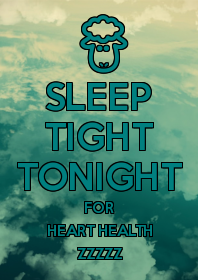Starting as early as 30, improving the quality and quantity of sleep can eliminate future risk of memory loss and a wide range of mental and physical disorders. UC Berkeley researchers think that nearly every disease killing us in later life has a causal link to lack of sleep.
   If you have trouble sleeping more now than when you were younger, don’t worry that this is how your nights will be from here out. Generally, you will be able to fall back asleep as fast as you used to with a strategy. Researchers find that the aging brain has trouble generating the kind of slow brain waves that promote deep restorative sleep, called deep non-rapid eye movement. This time-out for the brain helps sort the unimportant to important information from the hippocampus, to the prefrontal cortex, which consolidates information into long-term storage.
Here are some suggestions to how you can get the sleep you need:
Daytime routine
 Caffeine: Generally, caffeine lasts for five to six hours in the body. Try to not have caffeine later than mid-afternoon.
 Naps: Naps are great, but no later than mid-afternoon.
 Late-night eating: Try to avoid eating less than three hours before bedtime or overeating at dinner.
Evening routine
 Minimize screen time: Turn off your iPhone, iPad and TV to minimize screen time.
Bedroom: Have your bedroom quiet and dark, and a cool temperature. Core body temperature drops with the onset of sleep, but then increases because of a greater blood flow to the skin, so have comfortable bedding. Around 9 p.m., your body produces melatonin, which helps control your sleep-wake cycle. Melatonin is a natural hormone made by the pineal gland, located just above the middle of the brain. When the sun goes down, the pineal turn on signals in the brain that controls hormones, body temperature and other functions that play a role in making us sleepy or very awake. Its transmission is better promoted in a dark environment. Melatonin level stays elevated typically throughout the night, and drops before the light of a new day. When traveling, pack an eye mask and earplugs.
   Meditate in bed: Promote relaxation by relaxing as much as you can once you get into bed. It takes practice, but focus on slow, quiet breathing. A simple breathing practice can consist of only a few minutes to reconnect to mind, body and spirit. Keep focusing on your breath, and let any thoughts go. If you start to think about things, give yourself credit for noticing that your mind has wandered, and return to gentle breathing.
 Connie Aronson is an ACSM-certified exercise physiologist at the YMCA in Ketchum. Learn more at www.conniearonson.com.
Published in the Idaho Mountain Express May 5, 2017


